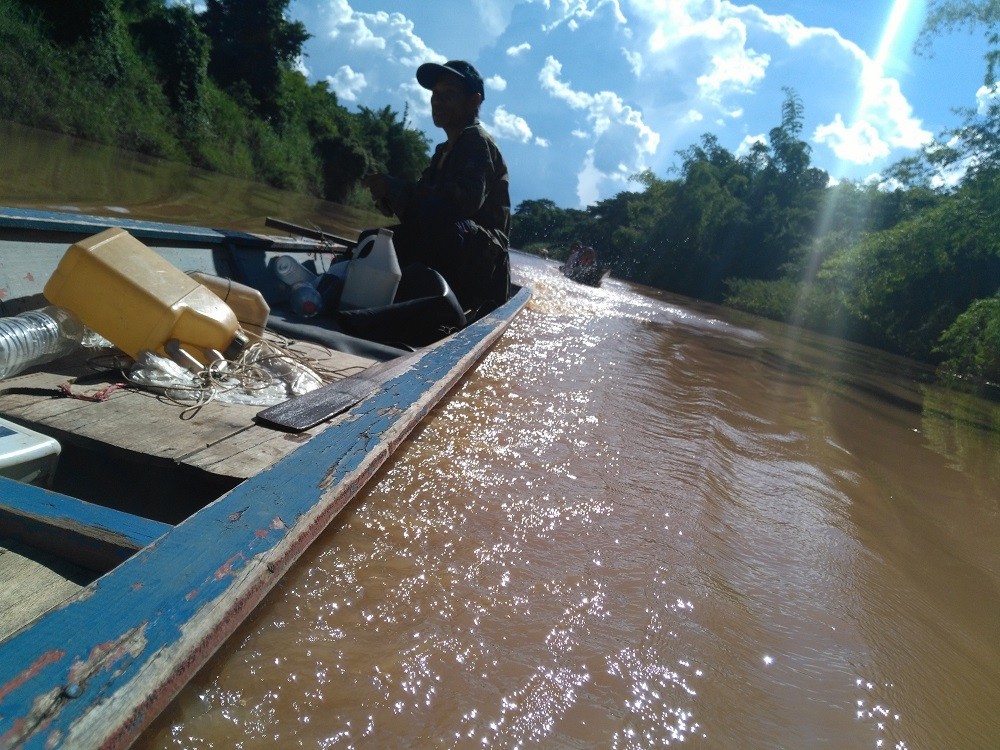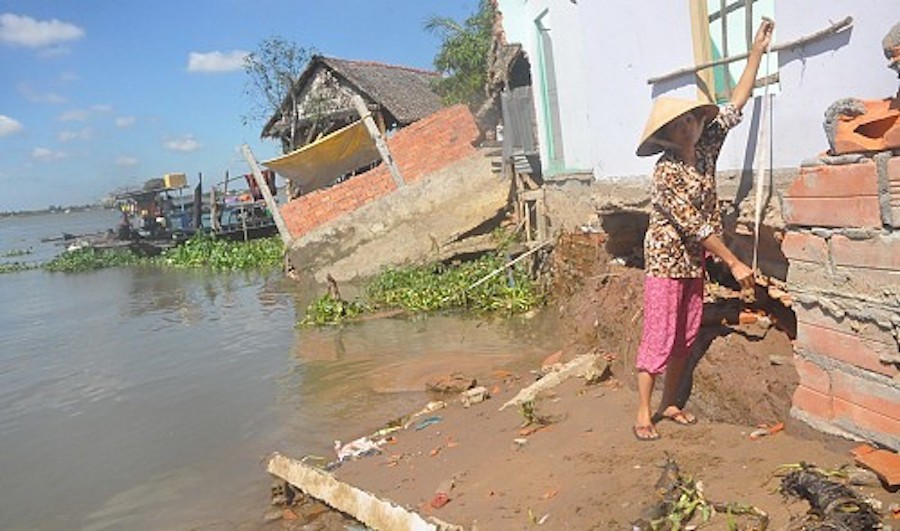Dr. Le Anh Tuan, the only environmental expert from Vietnam has been invited to join experts from other Lower Mekong countries to visit the location of the mega project “Kong-Loei-Chi-Mun” of Thailand. Dr.Tuan shared that the project plans to divert Mekong water to tunnels under Loei river, storing at the reservoirs of Huai Luang and Ubol Rattana. It is estimated that approximately 1,200 cubic meters water per second will be moved from Mekong River through the facility. Once operates, it will take half amount of water from the mainstream Mekong River that is now sharing by other neighboring countries. Currently, the Mekong Delta provinces are facing saline water intrusion as a result of low water levels in the Mekong River. Cambodia and Lao PDR are also plan for similar water diversion projects. If the Kong-Loei-Chi-Mun and similar projects will be implemented in Cambodia and Lao PDR, the volume of flood water to Vietnam’s Mekong River Delta area will be significantly reduced. Furthermore, climate change and El Nino phenomenon will make the issue even more challenging.
Commenting on the mega project Kong-Loei-Chi-Mun, Dr.Tuan said that according to the Mekong Agreement 1995 “the project’s implementation on the Mekong mainstreams should be informed, consulted, and received the consent of the country”. However, this statement mentioned “Mekong mainstreams”, meanwhile Thailand water diversion project are located on Loei River in Thailand. After 21 years of the implementation of Mekong Agreement 1995, there are many gaps in the agreement that need to be reviewed, Dr.Tuan added. In the past 10 years, the cooperation among Mekong countries is not clear nor transparent. The conflicts between the countries sharing the Mekong River are not new. It has been going on for a long time and involving many countries. Kong-Loei-Chi-Mun project will add on another conflict, which is likely to affect overall growth, general stability and economic development of all Lower Mekong countries.
Loei Governor, Wiroj Jiwarangsan shared his opinion that Loei province will not benefit from Kong-Loei-Chi-Mun project because the water will be transferred to other Northeastern provinces for irrigation through Loei. Up to now, the governor has not received full project information. He believes that the impact assessment should be science-based or it will be very challenging to implement the project.
Ms Pianporn Deetes, Thailand campaign coordinator of International Rivers, said years ago that there was a project named Kong-Chi-Mun which also aimed at diverting Mekong water to the basins of Chi and Mun rivers. But after only a short time of operation, there were many negative impacts to the environment. The project was then stopped due to public protest. The anticipated benefits from Kong-Loei-Chi-Mun such as flood control, irrigation, or productivity growth for domestic use are not really relevant. On the other hands, serious impacts on ecosystems, natural resources and local livelihoods are obvious. If the Kong-Loei-Chi-Mun project starts implementing, it will have significant impacts to Mekong River and people who live along the river, especially the Mekong Delta.
Pianporn thinks that Thailand needs to inform and consult with neighboring countries if Thailand want to proceed with the project, following Mekong Agreement 1995.
This story was produced in collaboration with The Mekong Eye and Mekong Matters Journalism Network, with full editorial control to the journalist and their outlet.
Image: Study tour on Loei River, the location of proposed Kong-Loei-Chi-Mun project, Credit: MPE .
Story in Vietnamese language.





